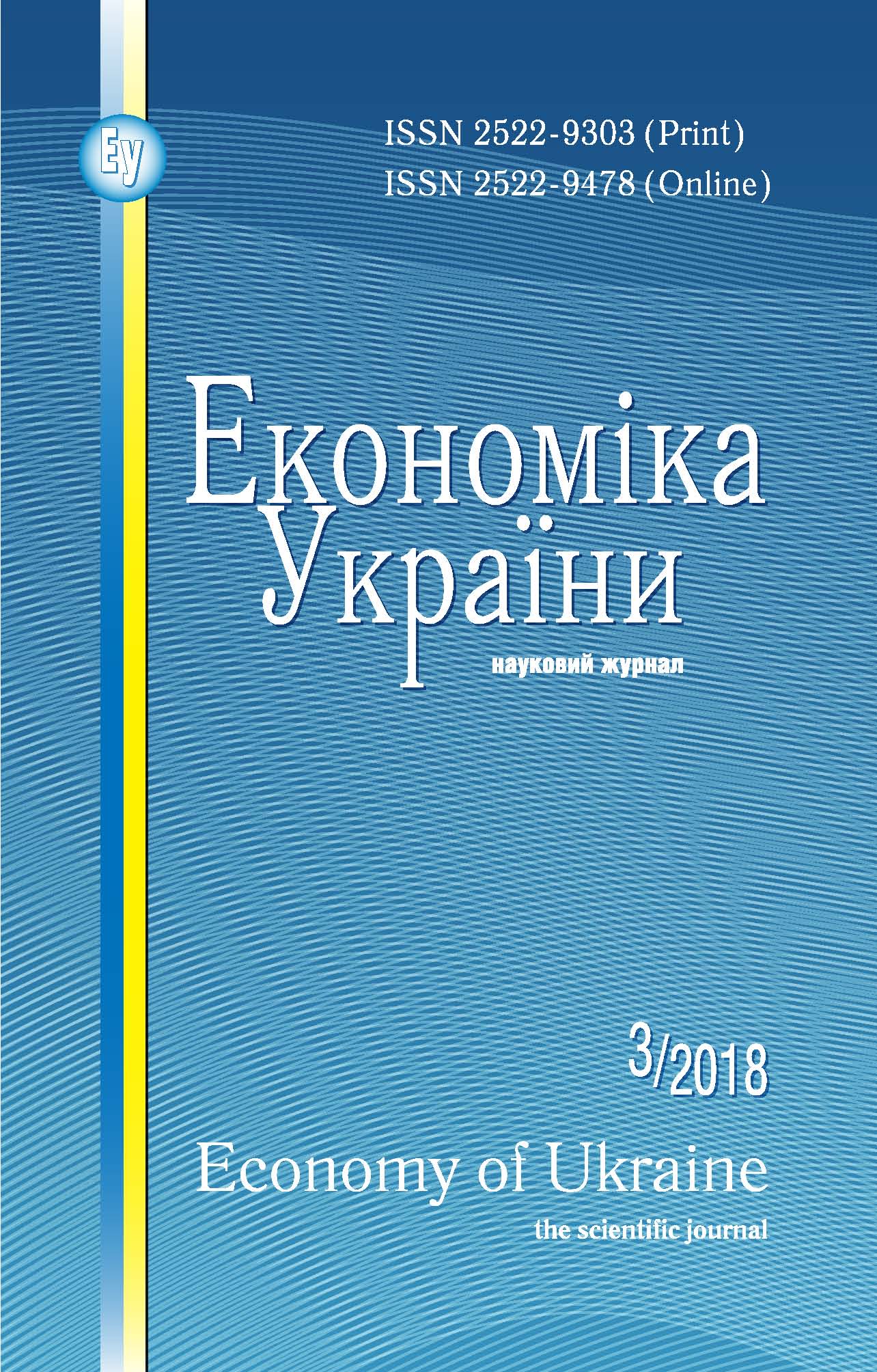INNOVATION-INFORMATION ECONOMY: POSTINDUSTRIALITY, GENERATIVITY, OPENNESS
DOI:
https://doi.org/10.15407/economyukr.2018.03.036Keywords:
postindustrial; innovation-information economy; knowledge-intensive information; neos; ecogenetics; self-development; generativity; creativity; opennessAbstract
Actual problems of postindustrial innovation-information economy in the context of European choice of Ukraine under conditions of global transformations are being considered. The innovation-information economy is characterized as a leading component, source, generator and core of self-development of the postindustrial economy, progressive evolution of the national economy and society. First of all, it concerns neos innovations of substantive type and knowledge-intensive information as a form of representation of scientific knowledge, the effective means of directed updating and transformation of the ecogenes and economic genome of national economic actors, engine of their creative activity. Modern innovation-information revolution determines the objective character of the laws of scientific intellectualization and innovative informatization of economic activity.
A unique innovation-generating role of knowledge and knowledge-intensive information is determined, in particular, by their substrate qualities, including: almost absolute metamorphism, indifference to carrier material, increased mobility, an ability to be subject to appropriation without proper alienation, an effective integrator of production factors and a catalyst for innovation capital formation, a moderator of the cyclic co-evolution of the basic components of the innovation-information economy. In reproductive economic processes, knowledge and knowledge-intensive information are represented directly as special essential forces of economic participants and in the form of innovation-information products (in non-market sphere of reproduction) or innovation-information goods (in market sphere of reproduction). These products and goods are carriers of the basic qualitative characteristics of knowledge and knowledge-intensive information, which allows them to be the leading “players” of the global economy.
The creative potential of development inherent in the innovation-information economy can be realized only under conditions of its nationally oriented openness to the leading global trends and processes, in particular: (i) comprehensive knowledge-intensive informatization and computerization; (ii) active creative development of the economy and society; (iii) actualization of economic creativity and freedom; (iv) competitive cooperation and civilized struggle; (v) expansion of mobile and highly professional human capital. The innovation-information economy should become a powerful vanguard of the national development.
References
Ekonomika Tsivilizatsii v Global'nom Izmerenii [The Economy of Civilizations in Global Dimension]. A.A.Porokhovskii, V.N.Tarasevich (Eds.). Moscow, TEIS, 2011 [in Russian].
Tarasevych V.M., Zavhorodnia O.O. Prolegomeny do ekonomichnoi neosologii [Prolegomena to economic neosology]. Byuleten' mizhnarodnoho Nobelivs'koho ekonomichnoho forumu - Messenger of the International Nobel Economic Forum, 2012, No. 1 (5), Vol. 1, pp. 117-125 [in Ukrainian].
Zavhorodnia O.O. Aktual'ni kontsepty ekonomichnoi teorii innovatsii [Current concepts of economic theory of innovation]. Ekonomichna teoriya - Economic Theory, 2016, No. 2, pp. 5-17 [in Ukrainian].
doi.org/10.15407/etet2016.02.005
Kuz'minov Ya.I., Bendukidze K.A., Yudkevich M.M. Kurs Institutsional'noi Ekonomiki: Instituty, Seti, Transaktsionnye Izderzhki, Kontrakty [Institutional Economics Course: Institutions, Networks, Transaction Costs, Contracts]. Moscow, SU HSE, 2006 [in Russian].
Bowles S. Mikroekonomika. Povedenie, Instituty i Evolyutsiya [Microeconomics. Behavior, Institutions, and Evolution]. Moscow, Delo, 2010 [in Russian].
Nelson R.R., Winter S.G. Evolyutsionnaya Teoriya Ekonomicheskikh Izmenenii [An Evolutionary Theory of Economic Change]. Moscow, Delo, 2002 [in Russian].
Polanyi M. Sense-Giving and Sense-Reading, in: Intellect and Hope: Essays in the Thought of Michael Polanyi. Langford T.A., Poteat W.H. (Eds). Durham, N.C., Duke University Press, 1968.
Varavva M.Yu. Stanovlenie Ekonomiki, Osnovannoi na Znaniyakh [The Formation of a Knowledge-Based Economy]. Orenburg, OSAU, 2008 [in Russian].
Popper K.R. On the Theory of Objective Mind, in: Akten des XIV. Internationalen Kongress fur Philosophie. Wien, Herder-Universitát Wien, 1968.
El'meev V.Ya., Tarando E.E. Sotsiologiya Sobstvennosti [Sociology of Property]. St. Petersburg, Palmira, 2000 [in Russian].
Val'tukh K.K. Informatsionnaya Teoriya Stoimosti i Zakony Neravnovesnoi Ekonomiki [Information Value Theory and the Laws of a Non-Equilibrium Economy]. Moscow, Yanus-K, 2001 [in Russian].
Downloads
Published
How to Cite
Issue
Section
License
Copyright (c) 2024 Economy of Ukraine

This work is licensed under a Creative Commons Attribution-NonCommercial-NoDerivatives 4.0 International License.



